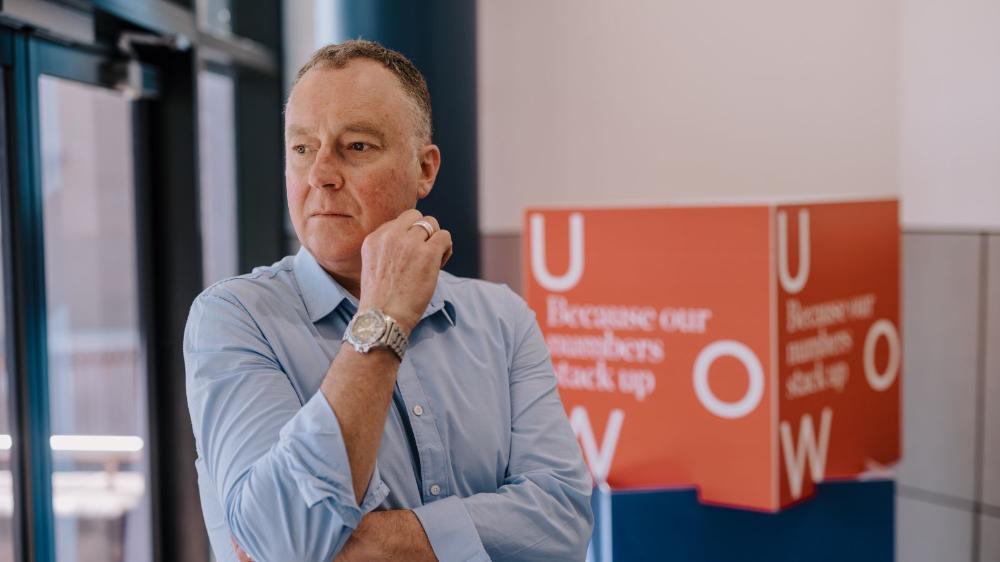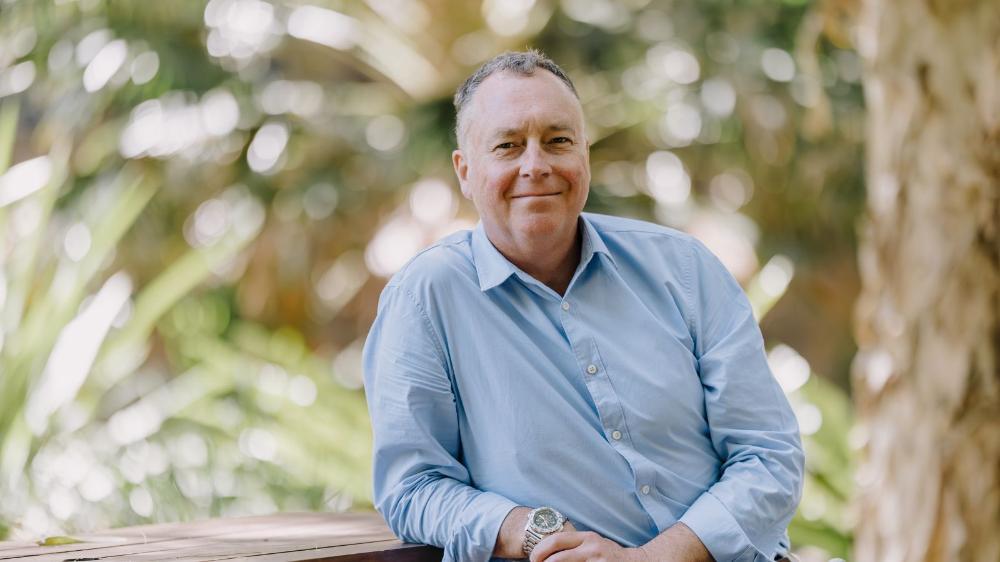:format(jpg)/prod01/channel_3/assets/media-centre/TIM-WAND-BANNER-499X281.jpg)
Compassion in crisis
How a dedicated nurse found his calling in emergency mental health
December 8, 2023
Meet the newest recruit in UOW's School of Nursing, Professor Timothy Wand
It was during his undergraduate nursing degree that Professor Timothy Wand was drawn to mental health nursing. Something clicked, and he knew it was the best fit for him. That was 32 years ago, and the nursing professional hasn’t looked back.
After a stint working in inpatient mental health units, Professor Wand had an opportunity to work in the Emergency Department of the Royal Prince Alfred (RPA) Hospital in Sydney. It was here that Professor Wand says everything fell into place.
“My initial experience at RPA solidified my decision to follow a path in mental health nursing,” Professor Wand says.
“Emergency departments are chaotic and random environments at times, but it’s also really rewarding work. You meet some amazing staff and have the privilege of working with people who are troubled or distressed and who really benefit from your input.
“I gained a lot from my work at RPA and I hope to be able to pass on the skills and knowledge it gave me to the next generation of nurses.”
That next generation of nurses will be University of Wollongong (UOW) graduates, after Professor Wand recently joined the University’s School of Nursing as a Professor of Nursing (Mental Health).

Professor Wand was born and raised in the Illawarra
It’s a full circle moment for Professor Wand, who was born and raised in the Illawarra, but has lived and worked in Sydney for 35 years.
“I recently moved back to the area with my family and we’re enjoying being close to the beach and near family again.”
Professor Wand is also looking forward to learning more about the needs and differences between Sydney and Wollongong’s local health districts, and the role emergency mental health nursing plays in the region.
“I’m planning on going on a meet and greet blitz now I’m here. It’s important for me to do a lot of listening to work out what is needed in regional areas and where I can best contribute.”
The importance of listening is a recurring theme, with Professor Wand saying it’s an essential skill of a mental health nurse.
“Mental health nurses in emergency departments engage with people in therapeutic ways,” Professor Wand says.
“The main benefit people derive from seeing a mental health nurse in an emergency is the therapeutic value of being listened to and understood. Having someone who can spend time listening to a patient, validating their experience and providing some ideas or suggestions to help alleviate problems can really help to de-escalate agitation.
“It’s a mixed bag for mental health nurses in emergency departments, which is what makes it such an interesting job. People may present feeling suicidal; there is self-harm; we see a lot of anxiety and panic; and often drugs and alcohol can be involved too.”

Professor Wand says the role of mental health nurses is critical
The role of a mental health nurse can be pivotal for many people who turn up to an emergency department seeking support, with Professor Wand describing it as a turning point.
“It’s where the role of a mental health nurse can be critical, we may see red flags and intervene at a time that enables us to turn the situation around. You can really see how those conversations you have with people in an emergency department can be pivotal.”
Despite the growing awareness of mental health conditions and prevalence of people trained in the sector, Professor Wand admits there are still challenges when it comes to the segregation of mental health from the rest of health services. Describing the split as an artificial division, the nursing professional says we need to think about the mental health of all people who present to emergency.
“We’ve come a long way since I first started out, however I do believe there’s room to improve in terms of integrating physical and mental health across our health sectors and in hospitals,” Professor Wand explains.
“I’ve always tried to educate other health professionals, formally and informally, about emergency mental health, because sometimes people just need a little bit of insight into why someone may be continually presenting to emergency with the same issues.
“It can be frustrating for staff in emergency departments when they’re seeing the same person over and over again who may have overdosed or self-harmed, but I’ve always tried to informally have a chat with staff to say, ‘Hey, this person has had a bit of a troubled life and these expressions of distress are the manifestation of a life that’s been pretty hard from the moment it started’. I see a lot of my informal work as providing an alternative point of view on another person’s situation.”
 "The key to mental health nursing is about your relationships with people."
"The key to mental health nursing is about your relationships with people."
Professor Wand also educates other health professionals in more formal ways – speaking at conferences, in-service with doctors and nurses, and in his teaching and lectures at universities.
Meeting UOW students is top of mind for Professor Wand, who enjoys engaging with students to open their eyes to what things are really like in emergency mental health.
“Having clinical experience helps me educate students about what’s happening in emergency departments in terms of mental health and I find students appreciate that.
“Things are changing quickly in this area, there is much greater recognition that mental health is more related to social factors rather than genetics and biology than previously thought, so I believe it’s really important to emphasise this to students.
“At the end of the day I really want students to walk away from my classes understanding that the key to mental health nursing is about your relationships with people. And not just patients, but other colleagues too.
“It’s much more than medications and assessment, the therapeutic relationship is key.”